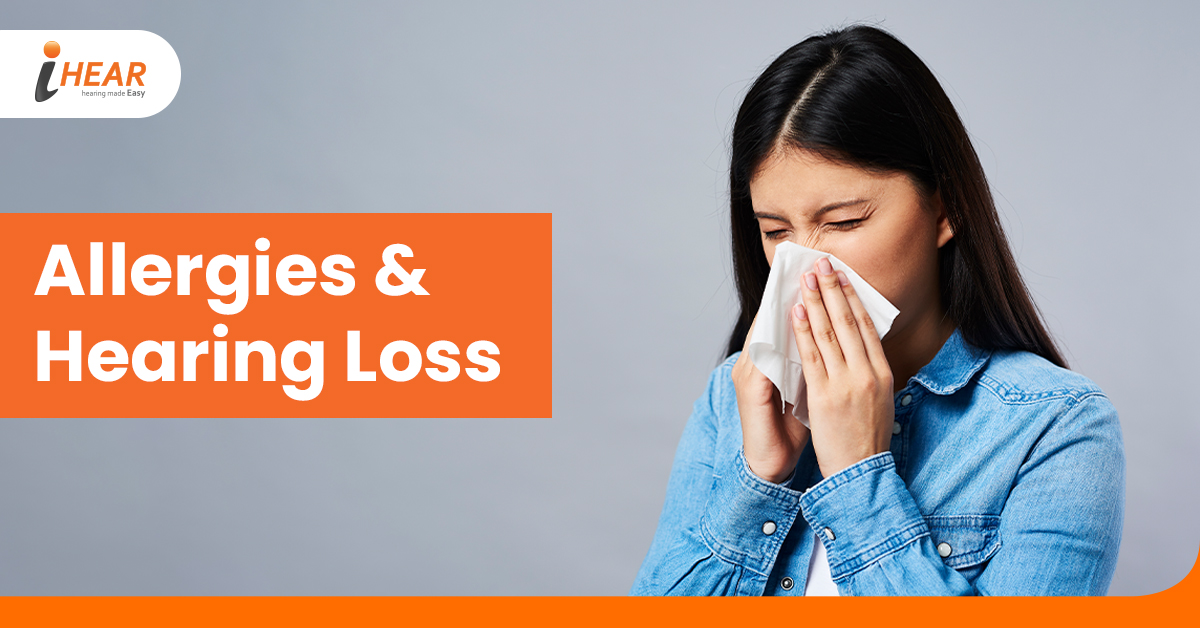Allergies and Hearing Loss
You may already be aware of how uncomfortable it may be to have itchy eyes and a runny nose due to something that is completely unrelated to you if you suffer from seasonal allergies. These are the typical allergic reaction signs, however they’re not the only ones. They may also have an impact on your hearing. In fact, they may even result in hearing loss and the sensation that your ear is full. We’ll cover all the information you need to know about allergies and hearing loss in this blog, including their causes and solutions.
Allergies can sometimes be associated with hearing issues, although they typically don’t directly cause hearing loss. However, they can indirectly affect your hearing in the following ways:
Ear Congestion: Allergies can lead to nasal congestion and sinus congestion, which can block the Eustachian tubes. These tubes connect the middle ear to the back of the throat and help equalize pressure in the ear. When they become blocked due to allergies, it can lead to a feeling of fullness in the ear, reduced hearing, and even a temporary conductive hearing loss. This is often referred to as “allergic ear.”
Ear Infections: Allergies can increase the risk of ear infections, especially in children. Ear infections, if left untreated, can lead to temporary hearing loss. Fluid buildup in the middle ear can reduce the ability of the eardrum and middle ear bones to transmit sound to the inner ear.
Tinnitus: In some cases, allergies can cause or exacerbate tinnitus, which is the perception of ringing or buzzing in the ears. While allergies themselves don’t directly cause tinnitus, the congestion and changes in pressure in the ear can contribute to tinnitus symptoms.
Medication Side Effects: Antihistamines and decongestants, commonly used to manage allergy symptoms, can have side effects like dizziness, which can affect balance and equilibrium. These side effects can indirectly impact hearing.
To address allergy-related hearing issues:
Manage Allergies: Consult with a healthcare professional to manage your allergies effectively. This may include medications, allergy shots, or environmental changes to reduce allergen exposure.
Keep Ears Clear: Gently clean your ears with a warm, saline solution to help clear earwax or debris. Avoid using cotton swabs, as they can push wax deeper into the ear canal.
Treat Ear Infections: If you develop an ear infection, seek prompt medical treatment to prevent complications that could lead to hearing loss.
Protect Your Ears: Be cautious about loud noises, especially if you’re taking medications that can cause dizziness. Prolonged exposure to loud sounds can contribute to hearing loss.
If you experience persistent or severe hearing issues related to allergies, it’s essential to consult with an audiologist or an ear, nose, and throat specialist (otolaryngologist) for a thorough evaluation and appropriate management. They can help determine the specific cause of your hearing problems and recommend the most suitable treatment.

